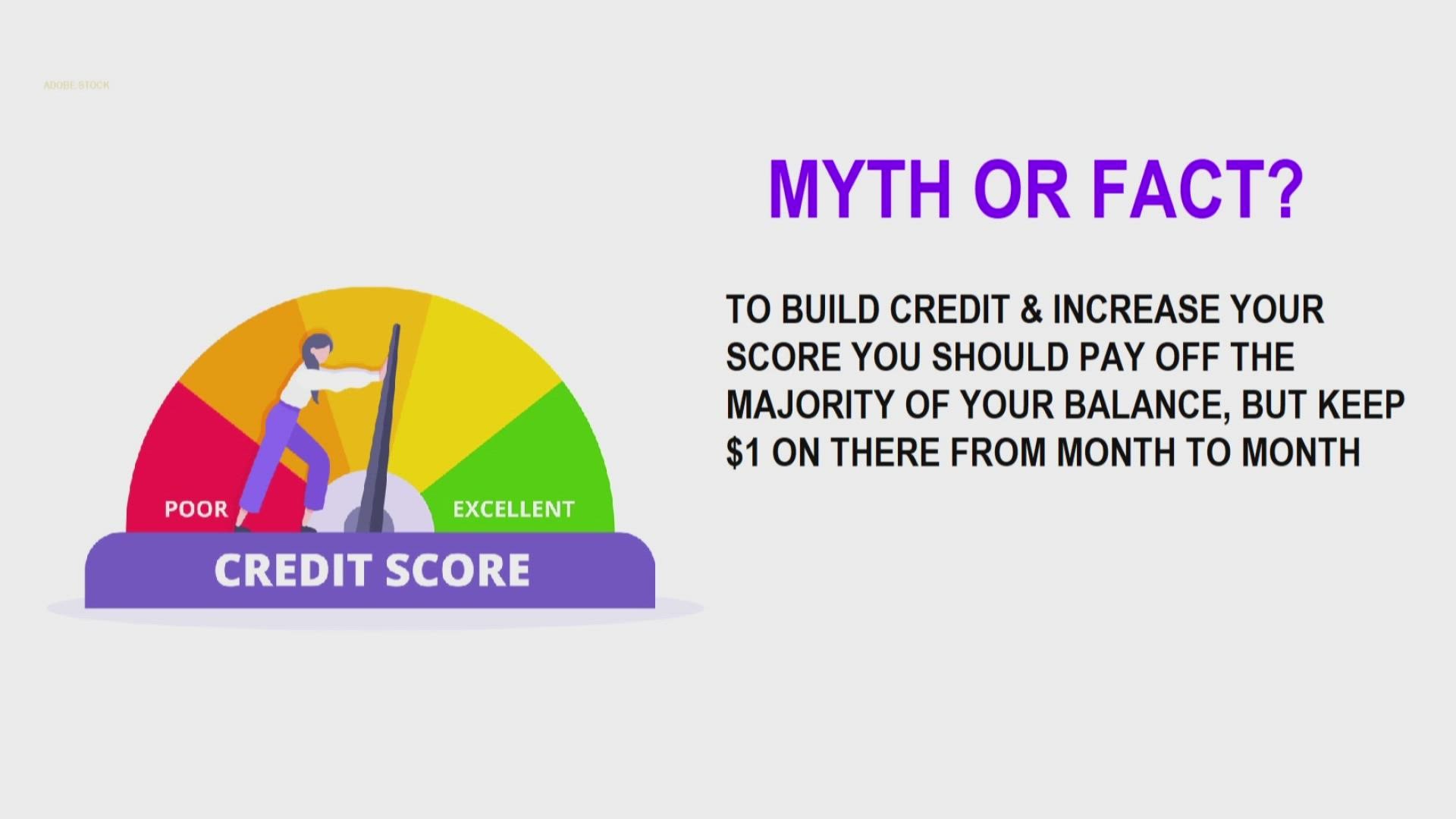GREENSBORO, N.C. — Your credit score is everything. It can be a factor in getting an apartment, a job, whether you can get a loan for a car and what interest rate you’ll be charged.
The problem is that there are many myths out there about how to increase your score. 2 Wants to Know the facts, so let's set a few things straight.
Recently, someone said this to me:
To build credit and increase your score, you should pay off the majority of your balance but keep $1 on there from month to month.
Is that a myth or a fact?
“It's a quite common myth. Your credit card balance is what you owe. Owing nothing is better than owing something, even if it is only a dollar,” said Nathan Grants of Moneytips.com.
Don't leave a small balance thinking you're doing yourself any favors. What matters is how much credit you have and how close you are to the end of it. It's called credit utilization.
This is standard, no matter what amount of credit you have, it could be a threshold of $500 in available credit or $10,0000. The rule of thumb is you don't want to use more than 30% of the total credit available. It shows you're not maxed out.
In a perfect world, you would have all your credit to use because you're paying off your bill in full and on time every month.
“Those payments, on time, in full if possible, those are the things that are reported that will do good for your credit score. A single late payment can remain on your credit report for up to seven years, so the last thing you want to have is a late payment,” said Grant.
To build your credit and increase your score pay your bill on time, every time. If you can pay it in full. Paying the minimum balance on time shows you’re consistent, but it doesn't help your credit utilization and gives money to the credit card company.

